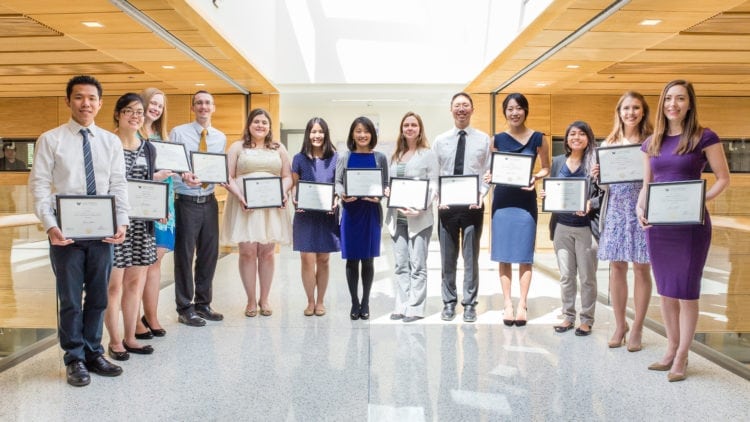
UW School of Pharmacy offers a novel approach to student training and patient care in Era Living residential communities. The program is a mutually beneficial one: in addition to their regular pharmacy services, residents receive supplemental medication expertise for which UW pharmacy faculty and students are well-known and student pharmacists have opportunities to enrich their training through supervised patient consultations and more. “As integrated members of the health care team, UW faculty practitioners and our registered nurses, social workers, and care staff are able to share valuable information centered around enhancing the health and well-being of our residents,” said Jacob Almo, Vice President of operations at Era Living.
The program benefits UW Pharmacy students by creating opportunities to work alongside faculty pharmacists. On a regular basis, students enhance their training by giving important presentations to residents on a range of topics including drug safety and how to prevent the flu, reduce insomnia, and manage diabetes, osteoporosis and more.
“I learned to see more than the medication list, but to think about how the patients live their lives and the factors that matter to them the most, including medication cost, feasibility, side effects, and tolerability.” –Sarah Buterbaugh, PharmD, ’16
By being on-site regularly and under faculty supervision, students are available to meet with residents. UW student pharmacist Sarah Buterbaugh helped a resident who had a host of prescriptions, including oral medications, inhalers, and topical products. Working with faculty pharmacist Jennifer Wilson Norton, Sarah helped organize and explain the medications, including what was mandatory, optional, and how best to store them. “The resident to this day, still keeps Sarah’s organization system,” notes Jennifer.
 Era Living offers “a unique practice environment and a wonderful experience for students,” said Sarah. “The geriatric population brings both curiosity and concern in the questions they have and each preceptor had time to discuss with me both the therapeutic options as well as to emphasize considering the patient as a whole. I learned just as much from the patients as the information we delivered to them. This rotation emphasized to me that the pharmacy profession is not just about medications but more importantly is about providing patient-centered care.”
Era Living offers “a unique practice environment and a wonderful experience for students,” said Sarah. “The geriatric population brings both curiosity and concern in the questions they have and each preceptor had time to discuss with me both the therapeutic options as well as to emphasize considering the patient as a whole. I learned just as much from the patients as the information we delivered to them. This rotation emphasized to me that the pharmacy profession is not just about medications but more importantly is about providing patient-centered care.”